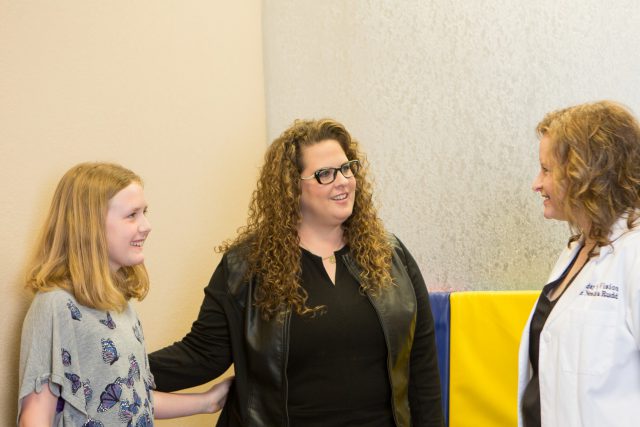

Yes! While every child’s case is different, vision therapy helps many children who have learning problems caused by vision issues. Sometimes a child who has trouble concentrating and focusing might be suspected to have a learning disorder when they are really just having trouble seeing clearly or processing the information they see.
Some common symptoms include blurred vision at near, double vision, headaches with near work, words run together burning, stinging, watery eyes, dizziness or nausea with near work, and car sickness/motion sickness. Check out our self assessment.
The first step in determining if vision therapy can help your child’s reading or learning problem is to contact Tyler Vision Therapy and schedule a comprehensive exam with Dr. Neshia Rudd. Following the exam, Dr. Rudd will provide a diagnosis and determine whether a vision therapy program is best course of action.
Vision therapy is a non-surgical, therapeutic treatment prescribed by an optometrist for common vision impairments that cannot be helped with glasses or contact lenses alone. Like physical therapy for the eyes and brain, vision therapy utilizes lenses, instrumentation, exercises, and occlusion to improve a patient’s visual function and performance.
There is no magic length of treatment because every case is different. However, the average length of a vision therapy program is 4-6 months of two 60-minute sessions a week.
Because every treatment plan is individualized, there is no exact cost. Once the patient is seen and diagnosed by a vision therapist, they will receive an outline of the costs associated.
Tyler Vision Therapy does not accept insurance, but does offer financial plans and payment options. Our passion is helping people see clearly and we will work with our patients to make their treatment plan affordable.
Every doctor specializes in certain fields and vision therapy is unfortunately not widely practiced. However, it is growing rapidly. For now, Tyler Vision Therapy is the only vision therapy office in Tyler.
An ophthalmologist is a Medical Doctor (M.D.) that specializes in physical problems of the eyes. These doctors do eye examinations and make diagnoses, and perform surgical and other procedures for conditions such as glaucoma, cataracts, macular degeneration, eye-related complications of diabetes and other potentially blinding conditions. They also measure eyesight and prescribe contact lenses and glasses.
An optometrist is a Doctor of Optometry, (O.D) and can examine eyes, diagnose medical eye problems and in some cases can treat patients’ eyes with drops and other medications. Optometrists provide “primary eye care” and are often the first to find medical eye problems and refer patients to ophthalmogists and other physicians. Optometrists are experts in evaluating patients ability to see clearly, and prescribing glasses and contact lenses.
But vision involves more than just seeing clearly. Developmental Optometrists provide vision therapy and have completed additional post-doctoral studies to help patients whose vision interferes with their ability to read, to learn, to comprehend and even to pay attention. Visual and perceptual skills such as the ability to take meaning from what we see, to easily understand and remember what we read, to know where we are in space, and where other items are in relation to us reside in the brain and are developed during early childhood. It’s very common for people to miss a developmental step and have trouble with these and other visual tasks. Special lens prescriptions and programs of care can help patients learn these and other visual abilities. Developmental Optometrists can also help people with developmental delays, and who’ve lost visual function through injury, stroke and neurological disorders.